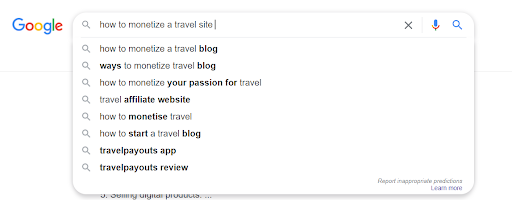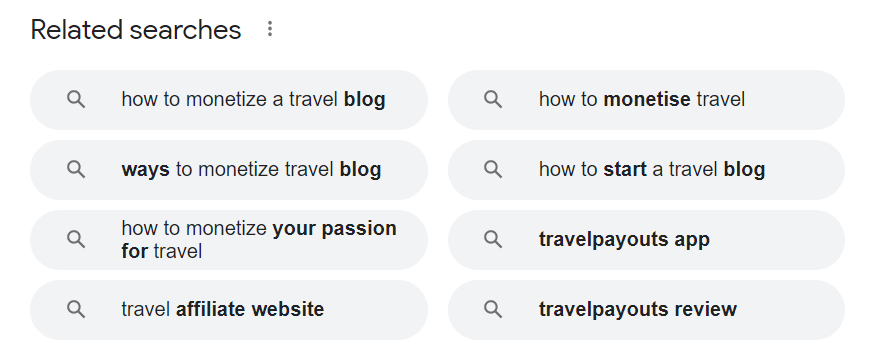Understanding Voice Search
Voice search is a technology that allows for conducting voice-enabled searches without a keyboard. The process is carried out by translating audio signals into words through machine learning and is used by many search engines like Google. Essentially, it takes 4 steps:
- Distinguishing voice commands from other sounds;
- Developing digital data from sound waves;
- Identifying the commands;
- Analyzing pattern data from the database.
To illustrate, Google talking search compiles data and draws it from customers. Computers use speech recognition to understand the idea and display it as text. Today, Google can discern audio signals from 70.18% to 76.57% accurately.
Why Optimize Content for Voice Search
Voice search optimization for your web page is a necessity these days if you want to keep up with the trends. Here are some statistics:
- In 2020, 52% of users relied on virtual assistants every day
- 70% of users will do their shopping by voice by 2022
- In 2022, voice-enabled shopping is estimated to reach $40 billion
How does that benefit you?
- Rating improvements. As voice searches show up first in the SERP, more people will discover your blog;
- Reputation building. Gaining credibility will be easier if you develop your voice search presence and do well in the rankings;
- Growth in income. Traffic growth leads to larger conversions and earnings.
How to Optimize Content for Voice Search
Here are 14 tips on how to optimize your content for voice search and SEO.
1. Optimize for Local Search Results
If you want your business to come up in voice search results, then running local SEO is crucial for your content. For instance, over 50% of local search queries are made on mobile devices, so you need to make your site mobile-responsive. What’s also interesting, the top three factors that influence users’ decision to trust a local business are photos, Google reviews and position on the SERP.
Neil Patel, renowned SEO expert and co-founder of NP Digital, shares the following tips for voice search optimization:
- Add phrases that people would use to talk about your area;
- Put “near me” in your titles, metadata, page links, etc.;
- Add local landmarks near your company;
- Indicate noteworthy local institutions.
2. Make Your Site Mobile-Friendly
As mobile searches constitute over half of voice searches, it’s crucial to ensure high-quality use experience for the mobile version of your site. Here’s what you can do:
- Invest in mobile-responsive design
- Test mobile compatibility to detect and resolve issues
- Maximize page performance and speed
- Make sure your pages are crawlable
3. Use Long-Tail Keywords
To optimize for voice search, it’s important to use keywords. Long-tail keywords may be especially beneficial, as they often have strong conversion rates, face less competition and are easier to rank. Last but not least, they are commonly applied for voice search.
How can you choose the best long-tail keywords for your content?
- Autocomplete searches. Type your keyword in Google search and see what the search engine suggests and what’s applicable;

- “People also ask” box. Here you may discover various ways that individuals seek out the services and add them to your blog;

- “Searches related to” list. Displayed below your query along with related findings. You can also implement these suggestions to your website.

4. Use Conversational Language
While it’s important to make your content sound professional, optimizing for voice search may require adding a reasonable amount of conversational language to attract more customers. Study the search queries that users type in Google and add them to your site where appropriate.
5. Create a Good FAQ Page
Oftentimes, people form search queries as questions, so your SEO for voice search should incorporate them as well. You can create a separate web page or a cluster of pages for frequently asked questions and fill it in with detailed instructions, facts, numbers, and other supporting materials.
Make sure to check your page performance with Google Search Console or any other analytics tool. You’ll see whether the page drives traffic, and if so, what queries bring visitors to you.
For better keyword research and performance analysis, take advantage of the following programs:
- Google Trends analyzes Google Search activity across regions and linguistic groups and shows trending queries in your niche;
- AlsoAsked.com is an invaluable resource for exploring a wide array of topics;
- Keywordtool.io allows you to generate up to 750 long-tail keyword suggestions for every search query;
- Other great sources of phrases and topics are Reddit, Quora, and other communities with user-generated content.
There are also a few paid solutions that might come in handy.
- Stat enables you to export extensive People Also Ask reports for each expression or tag you track.
- Another sophisticated tool is Answer the Public, which analyzes autocomplete data from Google and other search engines and pulls out useful questions and queries around your keyword.
- With Searchmetrics Content Experience Suite, you can effortlessly create and edit materials online with SEO recommendations;
6. Find Key Questions to Answer on Your Page
How to optimize for voice search? It’s paramount to focus each page around one specific question. Naturally, you can add related keywords to drive more traffic, but it’s better to not mix several topics on one page. If you have too many pages, consider creating a cluster page that will properly structure your content and help users navigate around your content.
7. Add Regional Variations in Spoken Dialects
How is voice search changing SEO? For example, more and more companies optimize their content for language variations in the area. Thus, if your target audience uses different languages or even dialects, make sure to specify terminology for each country and region. Here are a few ideas:
- Terminology in the supported dialects. Whether you translate content into a different language or accommodate dialects within one language, it’s important to add keywords for each language variation.
- Hreflang annotations for language-specific sites. With the Hreflang attribute, English speakers can view a website in English, while Japanese speakers can view it in Japanese;
- Check out the URL address. When language-based SEO is applied, multiple variations of the same webpage are created under one domain. Make sure every language has its own URL address.
8. Sign Up on Google My Business
People often use voice search to learn more about brands, and Google My Business is one such platform to share details about your business. Sign up on the platform and indicate your brand’s region, address, opening hours, and other relevant information.
9. Make Your Content Scannable
Readability, scannability, and the lack of annoying pop-ups will also help optimize your content for voice search. You can:
- Create bulleted lists. They break up long texts and allow readers to scan through information quickly. Bullet-pointed lists also increase the chances that your posts will be featured in the SERP;
- Divide text into small paragraphs. Develop one idea in a paragraph with 3-5 sentences in each one;
- Add graphics and photos. Illustrate the text with graphics. Pictures are helpful in conveying your message and breaking up lengthy copies.
10. Follow Google Guidelines
If you’re looking for Google voice search tricks, check these extensive instructions for mobile web searching. Google’s Voice Search Quality Guidelines may also prove useful to bookmark.
Make sure to consult the official voice command manuals for Android, iPhone, or Windows smartphones to ensure that you follow the latest guidelines.
11. Optimize for Ambiguous Spelling
If your brand’s name is not as simple as Ford or Apple, make sure to secure yourself against unconventional spelling or ambiguity and optimize content accordingly.
To begin with, research misspellings that may arise from common mispronunciations of your brand name. You may gather a group of participants of varying accents and dialects to conduct a voice search. Also, try modifying your search phrases with common misspellings and mispronunciations.
12. Remember About Speech Patterns
The language that people speak varies a lot based on geography, occupation, cultural background, and other factors. Analyze your audience and try to find out what speech patterns and idioms they may use for voice search. By the way, putting how and why questions on your blog can increase search traffic, so make sure to include them into your content.
13. Add Structured Data
Page ranking depends on many factors, and structured data or schema markup is one of them. Schema markup enables your web page to be crawled by search engines. Follow Google’s guideline on structured data to create the proper markup. While it doesn’t directly affect organic visibility, it still can help your content stand out from the competition.
14. Understand How People Use Voice Search
You can gain valuable insight into voice search by understanding how individuals approach it. Start by using voice search yourself and try to notice what speech patterns you use, and so on. Then, study statistics and do further research in this regard.
How to Optimize Content for Voice Search
Voice search adoption grows yearly as well as its impact on customer behavior. Optimizing your content for voice search along with mobile responsiveness will ensure an inflow of mobile users to your website. It’s possible to hire companies or experts who provide voice search optimization services, but with proper research, you can easily prepare the content yourself.




